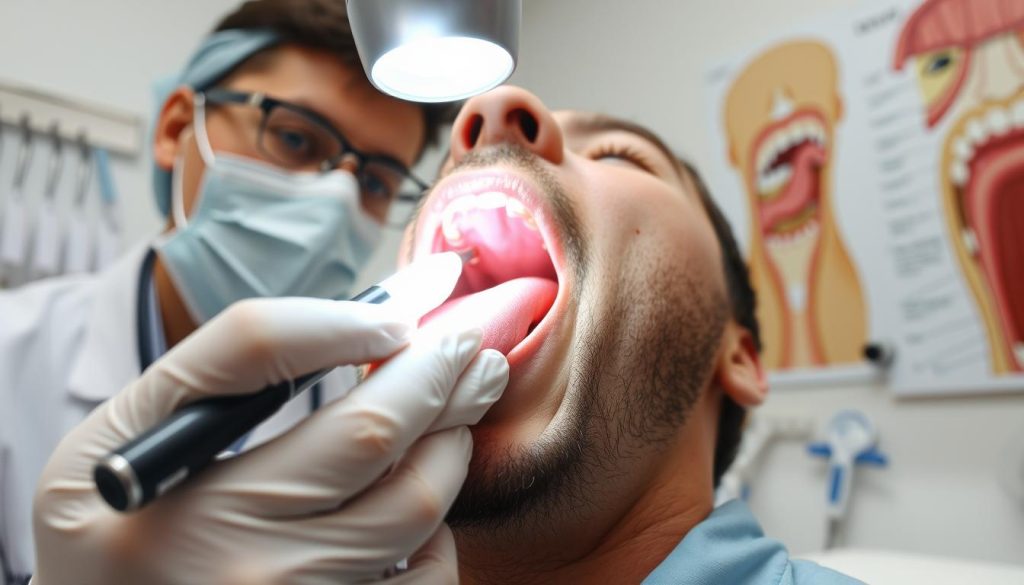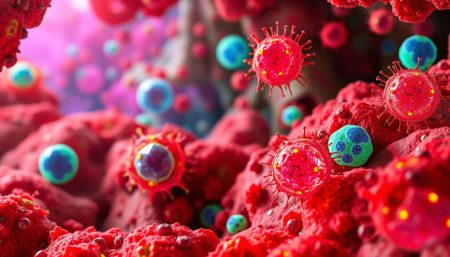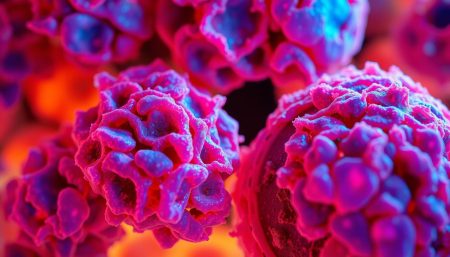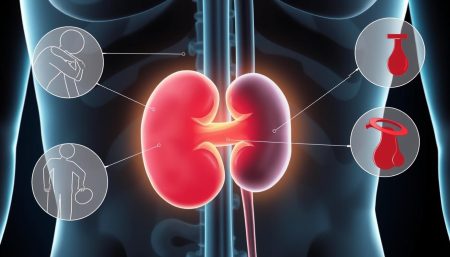Tongue cancer is a serious condition that affects thousands of Americans each year. It can change lives, but catching it early makes a big difference. Knowing the signs and symptoms is key for early diagnosis and treatment.
In this guide, we’ll cover the basics of tongue cancer. We’ll talk about risk factors, how it’s diagnosed, and its stages. We’ll also look at treatment options and why regular oral health checks are important.
Our goal is to help you spot the warning signs of mouth cancer. If you’re worried about yourself or a loved one, this guide will give you the information you need. Let’s learn more about tongue cancer and how to fight it together.
Understanding Tongue Cancer and Its Impact
Tongue cancer is a serious condition that affects many people worldwide. It starts in the cells of the tongue and can spread to other parts of the mouth. Early detection and treatment are key to improving outcomes for those diagnosed with this disease.
What Is Tongue Cancer?
Tongue cancer, also known as lingual cancer, occurs when cells in the tongue grow uncontrollably. It often begins in the squamous cells that line the surface of the tongue. Recognizing the early warning signs of oral is key for timely intervention and better treatment results.
Types of Tongue Cancer
There are two main types of tongue cancer:
- Anterior tongue cancer: Affects the front two-thirds of the tongue
- Base of tongue cancer: Occurs in the back third of the tongue
Global Statistics and Prevalence
Oral cavity cancer, including tongue cancer, is a significant health concern globally. Here’s a snapshot of its prevalence:
| Region | Annual New Cases | Mortality Rate |
|---|---|---|
| North America | 35,000 | 7,500 |
| Europe | 61,000 | 23,000 |
| Asia | 168,000 | 97,000 |
These statistics show why awareness and early detection are so important in fighting tongue cancer worldwide.
Risk Factors Associated with Oral Cavity Cancer
Oral cavity cancer, including mouth and throat cancer, can come from many sources. Knowing these sources helps in preventing and catching it early.

Tobacco use is a big risk factor. Smoking, whether it’s cigarettes, cigars, or pipes, raises the risk of oral cavity cancer. Chewing tobacco or using snuff also increases the risk.
Drinking a lot of alcohol is another big risk. Drinking a lot, and smoking too, makes the risk even higher. People who do both are at the greatest risk.
What you eat can also affect your risk. Eating fewer fruits and vegetables can make you more likely to get oral cancer. But eating more of these foods can help protect you.
Being in the sun too much can also cause cancer. This is true for the lips. Workers outside or those who spend a lot of time in the sun without protection are at risk.
| Risk Factor | Impact Level | Preventive Measures |
|---|---|---|
| Tobacco Use | Very High | Quit smoking, avoid chewing tobacco |
| Alcohol Consumption | High | Limit alcohol intake |
| Poor Diet | Moderate | Increase fruit and vegetable intake |
| Sun Exposure | Moderate | Use lip balm with SPF, wear hats |
Age and gender also play a part. Men over 50 are more likely to get oral cavity cancer. Viruses like human papillomavirus (HPV) also increase the risk, mainly for throat cancer.
Common Signs and Symptoms of Tongue Cancer
Spotting tongue cancer early can help a lot. Oral cancer signs might start small, but knowing them can be key. Let’s look at the main signs of lingual neoplasm.
Early Warning Signs
The first signs of tongue cancer are often missed. You might have a sore throat that won’t go away or feel like something’s stuck. A change in your voice or trouble moving your tongue could mean something’s wrong.
Physical Symptoms
As tongue cancer gets worse, you’ll see more obvious signs. Look out for:
- Unexplained bleeding in the mouth
- Numbness in the tongue or lips
- Swelling or lumps in the mouth
- Red or white patches on the tongue
Pain-Related Indicators
Pain is a big sign of oral cancer. You might feel pain when swallowing, chewing, or talking. Ear pain on one side can also be a sign, as nerves link these areas.
Visual Changes to Watch For
Watch for visible changes in your mouth. These signs include:
- Sores that don’t heal within two weeks
- Color changes on the tongue’s surface
- Unexplained tooth looseness
- Changes in how dentures fit
If you see any of these signs, don’t worry, but get medical help fast. Catching tongue cancer early can really help with treatment.
The Stages of Tongue Cancer Development
Tongue cancer stages show how this serious condition progresses. Understanding these stages is key for planning treatments. The TNM system uses tumor size, lymph node involvement, and metastasis to classify tongue cancer.
Stage 0 is the earliest phase of oral cancer. At this stage, abnormal cells are found only in the top layer of tongue tissue. As the disease progresses, it goes through stages I to IV.
In stage I, the tumor is small and stays in the tongue. Stage II has larger tumors. Stage III means the cancer has spread to nearby lymph nodes. Stage IV is the most advanced, with cancer spreading to distant parts of the body.
Squamous cell carcinoma, the most common tongue cancer, follows this pattern. Each stage affects treatment choices and survival rates. Early detection through regular oral cancer screenings can improve outcomes. Patients should talk to their healthcare providers about their specific stage to understand their treatment options.
| Stage | Description | Treatment Approach |
|---|---|---|
| 0-I | Early-stage, localized | Surgery or radiation |
| II-III | Larger tumor, possible lymph node involvement | Combined therapy (surgery, radiation, chemotherapy) |
| IV | Advanced, metastatic | Aggressive multimodal treatment, palliative care |
Knowing the stage of tongue cancer helps doctors tailor treatments and predict outcomes. Regular check-ups and prompt attention to oral changes are key in managing this disease effectively.
Diagnostic Methods and Procedures
Getting a tongue cancer diagnosis right is key. Doctors use different methods to find and check the cancer’s stage. These steps are important for planning the best treatment.
Physical Examination Techniques
Oral cancer screening starts with a detailed physical check. Doctors look closely at the mouth, tongue, and throat for any signs of trouble. They might use special lights to spot issues. This first step is critical for catching tongue cancer early.
Imaging Tests
Advanced imaging is vital for finding lingual cancer. Tests like:
- CT scans: Show detailed cross-sections
- MRI: Gives clear views of soft tissues
- PET scans: Spot cancer spread
These tests help doctors understand how big the cancer is and where it is.
Biopsy Procedures
A biopsy is the best way to confirm tongue cancer. It involves taking a small tissue sample for lab tests. There are different types of biopsies, including:
- Incisional biopsy: Takes part of the suspicious area
- Excisional biopsy: Removes the whole lesion
- Fine-needle aspiration: Uses a thin needle to get cells
Biopsy results tell doctors if there’s cancer and what kind it is. This info helps decide the best treatment and what to expect.
Treatment Options for Squamous Cell Carcinoma
Squamous cell carcinoma treatment has many options. Doctors pick the best one based on the tumor’s size, location, and stage. They consider each patient’s needs carefully.
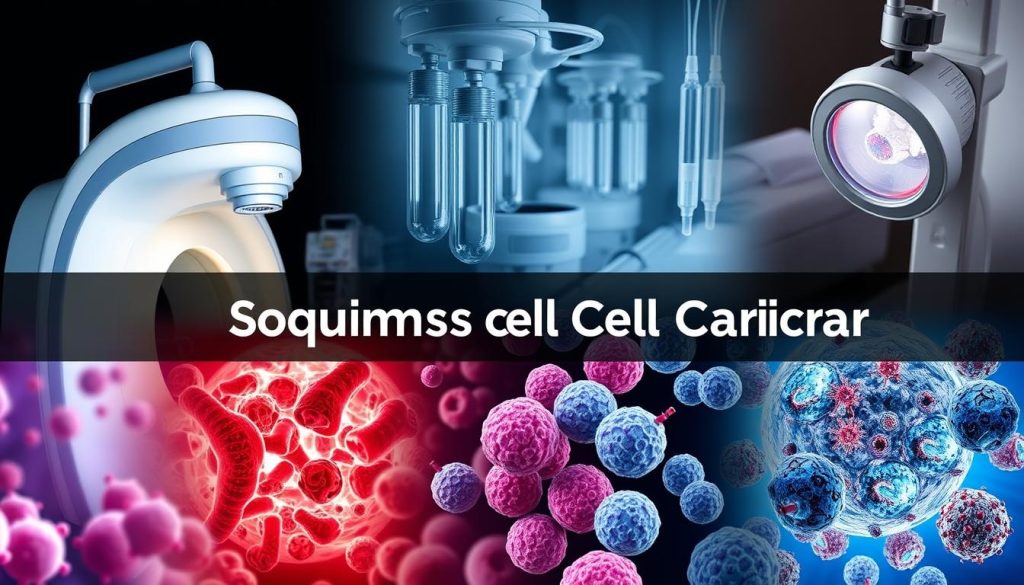
Surgery is often the first step in treating oral cancer. Surgeons remove the tumor and sometimes the tissue around it. They might also rebuild the area to keep it working right.
For bigger tumors, more detailed surgery is needed.
Radiation therapy is also key in tongue cancer treatment. It uses beams to kill cancer cells. It can be used before or after surgery. Some patients get radiation as their main treatment if surgery isn’t possible.
Chemotherapy is another important part of squamous cell carcinoma treatment. It uses drugs to kill cancer cells all over the body. It’s often used with radiation for advanced cases or when cancer has spread.
Targeted therapies and immunotherapies are new options in oral cancer management. These treatments target specific cancer cell traits or boost the immune system to fight cancer.
| Treatment Type | Primary Use | Potential Benefits |
|---|---|---|
| Surgery | Tumor removal | Direct elimination of cancer cells |
| Radiation | Local treatment | Shrinks tumors, kills remaining cells |
| Chemotherapy | Systemic treatment | Targets widespread cancer cells |
| Targeted Therapy | Specific cell targeting | Fewer side effects, precise action |
The right treatment depends on many factors. A team of doctors works together to find the best plan for each patient.
Survival Rates and Prognosis Factors
Knowing about tongue cancer survival rates and prognosis is key for patients and their families. The outlook for lingual cancer patients changes based on several factors. These include the stage at diagnosis and the patient’s overall health.
Stage-Based Survival Statistics
Tongue cancer survival rates change a lot based on when the disease is found. Finding it early often means better chances of recovery.
| Stage | 5-Year Survival Rate |
|---|---|
| Localized (Stage I & II) | 78% |
| Regional (Stage III) | 63% |
| Distant (Stage IV) | 36% |
Factors Affecting Prognosis
Many things can affect how well someone will do with oral cancer:
- Tumor size and location
- Lymph node involvement
- HPV status
- Overall health and age
- Treatment response
Quality of Life Considerations
The outlook for lingual cancer is not just about living longer. How well someone feels during and after treatment is also important. Patients might struggle with speaking, swallowing, and eating. Getting support and rehabilitation helps a lot in keeping a good quality of life after treatment.
While these numbers give a general idea, remember that every case is different. New treatments are helping more tongue cancer patients. This brings hope for better outcomes and a better life after treatment.
Prevention Strategies and Lifestyle Changes
Preventing tongue cancer starts with making good choices. By changing your lifestyle, you can lower your risk of oral cancer. Let’s look at some effective ways to reduce your risk.

Quitting tobacco is key. Smoking and chewing tobacco greatly increase your risk of tongue cancer. If you want to quit, ask your doctor about programs to help.
Drinking less alcohol is also important. Too much alcohol can raise your risk of oral cancers. Try to drink in moderation or avoid it altogether.
Eating a healthy diet is vital for tongue cancer prevention. Include lots of fruits and vegetables, which are full of antioxidants. Avoid processed foods and eat less red meat.
Protecting your lips from the sun is also important. Use a lip balm with SPF when you’re outside to block harmful UV rays.
| Prevention Strategy | Benefits | Implementation Tips |
|---|---|---|
| Quit tobacco | Reduces risk by 50% | Use nicotine replacement therapy |
| Limit alcohol | Lowers cancer risk | Set weekly drink limits |
| Eat healthy diet | Boosts immune system | Include colorful fruits and veggies |
| Sun protection | Prevents lip cancer | Apply SPF lip balm regularly |
Regular dental check-ups are vital for early detection. Go to your dentist at least twice a year for a thorough exam. These visits can spot problems early.
The Role of Regular Oral Health Screenings
Regular oral health screenings are key for catching tongue cancer early. These check-ups can spot problems before they get worse. Let’s look at what these screenings involve.
Professional Dental Examinations
Dentists are vital in finding tongue cancer. They examine the tongue, lips, cheeks, and throat during a mouth cancer check. They search for unusual spots, lumps, or color changes. These exams are quick, painless, and can save lives.
Self-Examination Guidelines
It’s also important to check your mouth at home. Use a mirror and good lighting to look at your tongue and mouth. Watch for:
- Red or white patches
- Sores that don’t heal
- Lumps or thickened areas
- Changes in how your teeth fit together
If you see anything odd, don’t worry. Just call your dentist right away.
Frequency Recommendations
Most adults should see a dentist every six months. But if you’re at risk for oral cancer, you might need to go more often. Remember, regular screenings are essential for early detection. Make them a big part of your health care.
Complications and Side Effects of Treatment
Tongue cancer treatment can cause many side effects and complications. Patients face physical and emotional challenges during recovery. Knowing about these issues helps prepare for what’s ahead.

Common side effects include trouble speaking, swallowing, and tasting food. These problems can greatly affect a person’s life quality. Oral cancer complications like dry mouth, tooth decay, and jaw stiffness can also occur.
Lingual cancer therapy effects can affect more than just the mouth. Patients might feel tired, lose weight, and notice changes in their appearance. Emotional challenges like anxiety and depression are also common.
| Treatment | Potential Side Effects |
|---|---|
| Surgery | Speech difficulties, altered appearance, swallowing problems |
| Radiation | Dry mouth, tooth decay, jaw stiffness, taste changes |
| Chemotherapy | Nausea, fatigue, hair loss, increased risk of infection |
It’s important for patients to talk openly with their healthcare team about side effects. This helps manage symptoms and improves treatment outcomes and life quality.
Support Systems and Resources for Patients
Having a strong support network is key for tongue cancer patients. There are many resources to help, from medical teams to financial aid. Let’s look at the main support systems for those facing this tough diagnosis.
Medical Support Teams
Your medical team is at the heart of your care. This team includes oncologists, surgeons, speech therapists, and nutritionists. They work together to make a treatment plan just for you. They also offer ongoing support during your recovery.
Support Groups
Meeting others who get what you’re going through is very helpful. Support groups are a place to share, learn, and find comfort. Hospitals and cancer centers often have these groups. You can also find online communities focused on oral cancer.
Financial Resources
Cancer treatment can be very expensive. But, there are financial help programs available. These include:
- Government programs like Medicaid or Medicare
- Non-profit organizations that give grants
- Hospital financial counseling services
- Prescription assistance programs
To find these resources, talk to a social worker or financial counselor. They specialize in helping patients with lingual cancer. They can help you find the right programs for your needs.
| Support Type | Benefits | How to Access |
|---|---|---|
| Medical Team | Personalized care, expert guidance | Through your oncology center |
| Support Groups | Emotional support, shared experiences | Ask your doctor or search online |
| Financial Aid | Help with medical costs, living expenses | Hospital social services, non-profits |
Recovery and Rehabilitation Process
The journey of tongue cancer recovery is tough but full of hope. Patients face unique challenges in their oral cancer rehabilitation. But with the right support and care, they can improve their quality of life. The healing process for lingual cancer requires a detailed approach.

Physical therapy is key in tongue cancer recovery. It helps strengthen facial muscles and improve tongue movement. Speech therapy is also vital, helping patients speak clearly again. Swallowing exercises are part of the program, making eating and drinking easier.
Emotional support is essential during oral cancer rehabilitation. Counseling helps patients deal with changes in appearance and function. Support groups provide a place to share experiences and learn from others.
| Rehabilitation Type | Focus Areas | Duration |
|---|---|---|
| Physical Therapy | Facial muscles, tongue mobility | 3-6 months |
| Speech Therapy | Articulation, voice quality | 6-12 months |
| Swallowing Therapy | Safe swallowing techniques | 3-9 months |
| Psychological Support | Emotional coping, body image | Ongoing |
Dietary changes are often needed during tongue cancer recovery. Nutritionists help patients get the right nutrition, even with eating challenges. As recovery advances, patients slowly return to normal activities, celebrating each success.
Latest Research and Medical Advances
Tongue cancer research is leading to new ways to diagnose and treat the disease. Scientists are working hard to help patients with this tough illness. Let’s look at some major breakthroughs in the field.
Current Clinical Trials
There are many clinical trials for tongue cancer right now. These trials are testing new treatments. Immunotherapy helps the body fight tumors better. Targeted drugs aim at specific weaknesses in cancer cells.
These trials give hope for treatments that are more effective and less harmful.
| Trial Type | Description | Potential Benefits |
|---|---|---|
| Immunotherapy | Enhances immune system response | Fewer side effects, longer-lasting results |
| Targeted Therapy | Attacks specific cancer cell features | Improved effectiveness, reduced harm to healthy cells |
| Combination Approaches | Combines multiple treatment types | Enhanced tumor shrinkage, better survival rates |
Emerging Treatments
New treatments for oral cancer are all about precision. This means treatments are made just for each patient’s cancer. Gene therapy is being explored to fix the genetic mistakes that cause cancer.
Nanoparticle drug delivery is another innovation. It aims to hit cancer cells directly, without harming healthy tissue.
Future Prospects
The future for tongue cancer treatments is very promising. Artificial intelligence might soon help find cancer early and accurately. Researchers are also looking into ways to grow healthy tissue after surgery.
These efforts aim to increase survival rates and improve life quality for those with tongue cancer.
When to Seek Medical Attention
Spotting tongue cancer signs early is key to better treatment. If you have persistent sores, bleeding, or trouble swallowing, see a doctor fast. These symptoms might seem small, but they could mean a big problem.
Watch for changes in your mouth’s look or how it works. Look out for lumps, white or red spots, or ongoing pain. Even small voice changes or weight loss should get you to the doctor.
If you feel something’s wrong with your mouth, trust your gut. Book a dentist or doctor visit right away. They can check you out and decide if more tests are needed. Early tongue cancer detection can lead to better treatment and survival chances.
Don’t let fear or being busy stop you from getting checked. Many symptoms can be minor, but only a doctor can tell for sure. Your health is important, and checking for tongue cancer is worth it.
FAQ
Q: What are the early warning signs of tongue cancer?
A: Early signs of tongue cancer include sores or lumps on the tongue and unexplained bleeding. You might also see white or red patches. Difficulty swallowing and changes in speech are other signs. If these symptoms last more than two weeks, see a doctor right away.
Q: Who is at higher risk for developing tongue cancer?
A: People at higher risk include heavy tobacco users and those who drink a lot of alcohol. Family history of oral cancers and HPV infections also increase risk. Men over 50 are at higher risk too. But anyone can get tongue cancer, no matter their risk.
Q: How is tongue cancer diagnosed?
A: Doctors use physical exams, imaging tests, and biopsies to diagnose tongue cancer. They start with a thorough oral exam. If they find something suspicious, they might do imaging tests. A biopsy is usually needed to confirm the diagnosis.
Q: What are the treatment options for tongue cancer?
A: Treatment for tongue cancer depends on the stage and location. It might include surgery, radiation, chemotherapy, or a mix of these. Early-stage cancers might just need surgery or radiation. For more advanced cases, treatments like targeted therapy or immunotherapy might be used. Your doctor will create a treatment plan just for you.
Q: What are the survival rates for tongue cancer?
A: Survival rates for tongue cancer vary based on the stage and other factors. Early-stage cancers have better survival rates, often over 75%. But, advanced cancers have lower rates. Remember, these are general stats, and outcomes can vary a lot.
Q: Can tongue cancer be prevented?
A: While not all cases can be prevented, you can lower your risk. Avoid tobacco and limit alcohol. Keep your mouth clean and see your dentist regularly. Eating well and protecting against HPV can also help.
Q: How often should I have oral cancer screenings?
A: Get professional oral cancer screenings at least once a year with your dentist. If you’re at higher risk, you might need more often. Doing monthly self-exams can help spot changes between dental visits.
Q: What side effects can I expect from tongue cancer treatment?
A: Side effects vary based on the treatment. You might have trouble speaking or swallowing, changes in taste, dry mouth, and fatigue. Some treatments can affect speech and swallowing long-term. Your healthcare team will help manage these side effects.
Q: Are there support groups available for tongue cancer patients?
A: Yes, there are many support groups for tongue cancer patients and their families. They offer emotional support, advice, and a sense of community. Hospitals, cancer centers, and online communities provide these resources. Your healthcare team can help find them.
Q: What new treatments or clinical trials are available for tongue cancer?
A: New treatments and trials are always coming up. Research focuses on immunotherapy and targeted therapies. There are also trials on combination therapies and less invasive surgeries. Talk to your oncologist about possible trials for your case.












